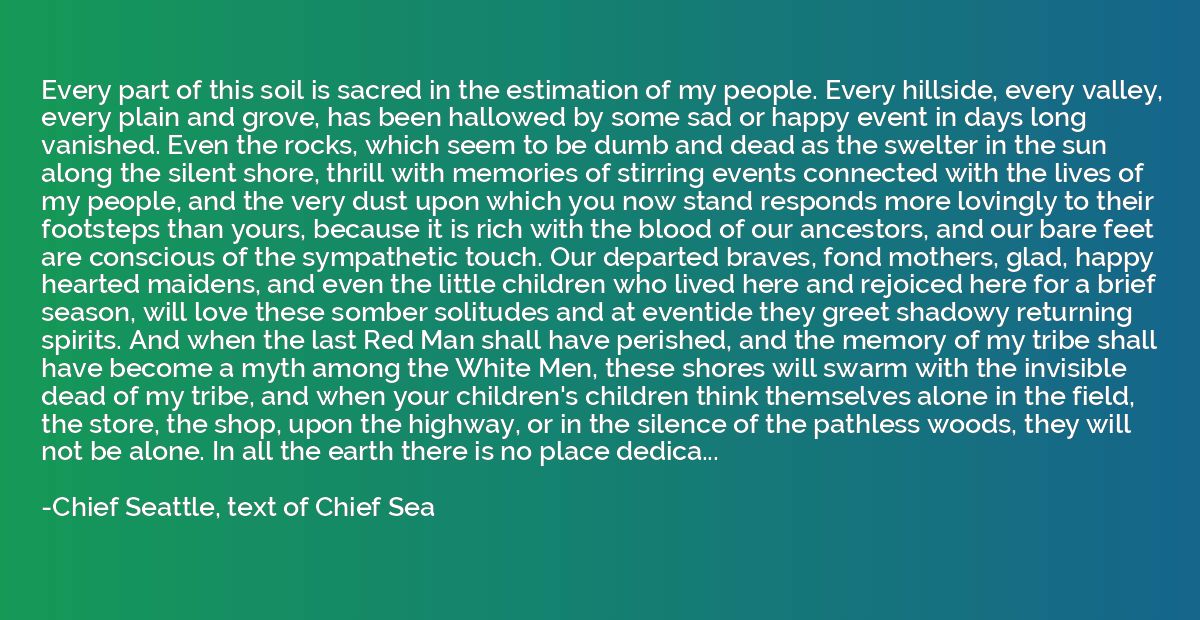Chief Seattle, text of Chief Sea Quotes
A collection of quotes by Chief Seattle, text of Chief Sea.
Chief Seattle, also known as Sealth, was a prominent leader of the Suquamish and Duwamish Native American tribes during the 19th century. Born around 1780, he grew up in the Puget Sound region of present-day Washington state, which was then inhabited by his indigenous community. Chief Seattle played a crucial role in maintaining peaceful relations between his tribe and the European settlers who began to occupy the area.
During his leadership, Chief Seattle witnessed significant changes in his homeland, including the arrival of American and British explorers and settlers. He was known for his diplomacy and efforts to maintain harmony between the Native American people and the newcomers. Chief Seattle was adept at negotiating treaties and agreements, seeking to protect his people's rights and lands.
One of Chief Seattle's most famous speeches, often referred to as the "Chief Seattle's Letter," addresses his concerns about the growing presence of settlers and the environmental impact of their actions. This speech eloquently emphasizes the interconnectedness between humans and nature, and it has come to symbolize environmental stewardship and the Native American perspective on the environment.
Chief Seattle spent his life advocating for the rights of his people and the preservation of their way of life. His legacy continues to inspire people to recognize the importance of respecting indigenous cultures, protecting the environment, and promoting peaceful coexistence between different communities.



